
Politics
19:39, 06-Jul-2017
China and Germany: Can common interests outweigh differences?
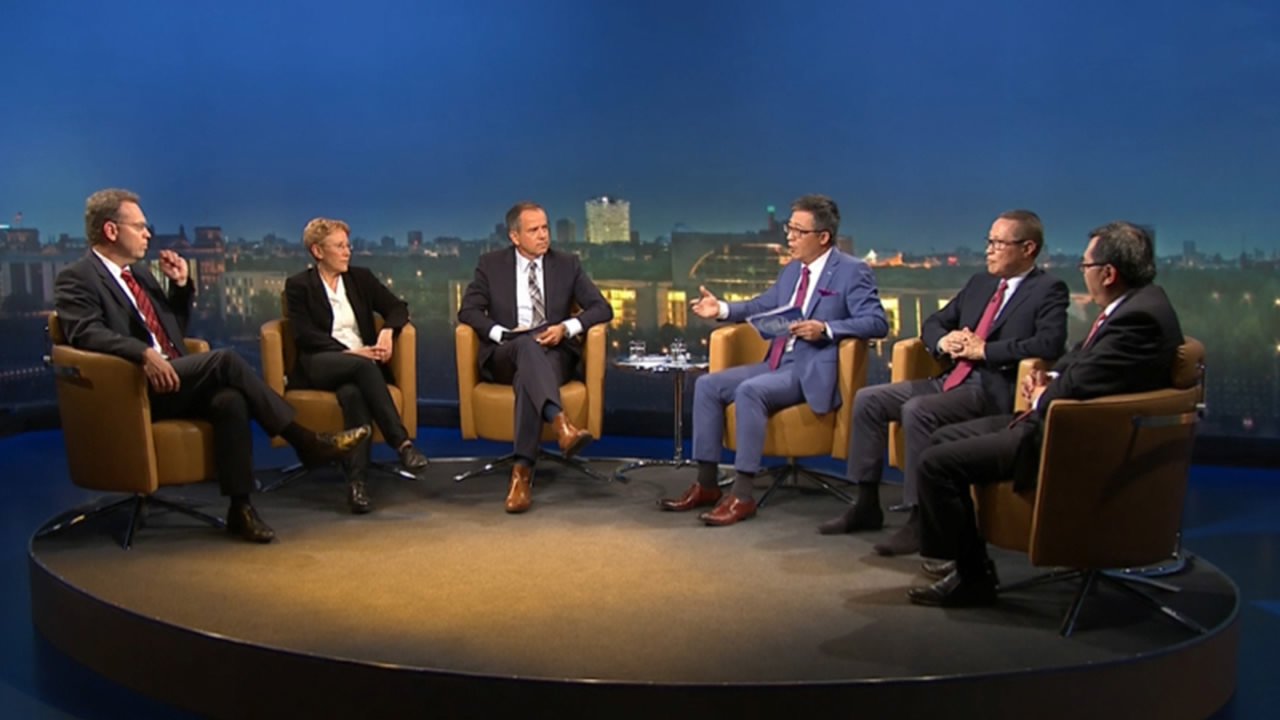
By CGTN's Dialogue
As major trading partners, last year’s G20 host China and this year’s host Germany are working closely together on every front: This was the message shared by Chinese Premier Li Keqiang during his most recent visit to Germany.
But issues such as market economy status, anti-dumping and arms embargo still top the list of differences between the two countries. And how they sort them out is critical for both sides.
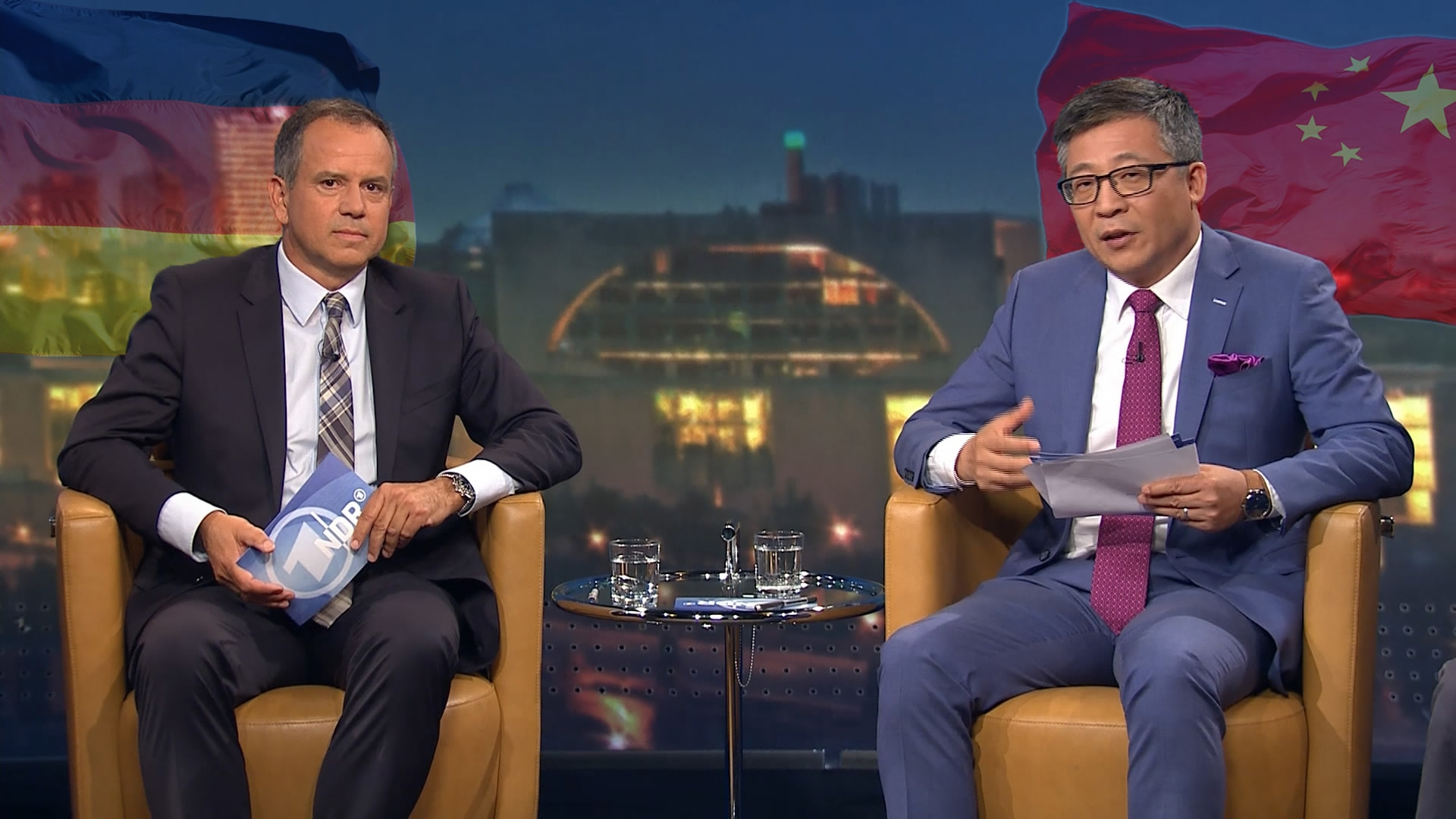
Debate hosts Andreas Cichowitz and CGTN's Yang Rui. /CGTN Photo
Debate hosts Andreas Cichowitz and CGTN's Yang Rui. /CGTN Photo
During a recent TV debate co-produced by CGTN and Germany’s largest public television ARD, guests from both countries sat down in Berlin to discuss mutual interests and differences, from global warming to trade and China’s Belt and Road Initiative.
On combating climate change, China and Germany should take a leadership role, said Sebastian Heilmann, director of Berlin's Mercator Institute on China Studies.
“The international strategic situation has changed with the Trump administration, with the withdrawal from the climate mitigation policy and doubts about multilateral trade policy,” he noted.
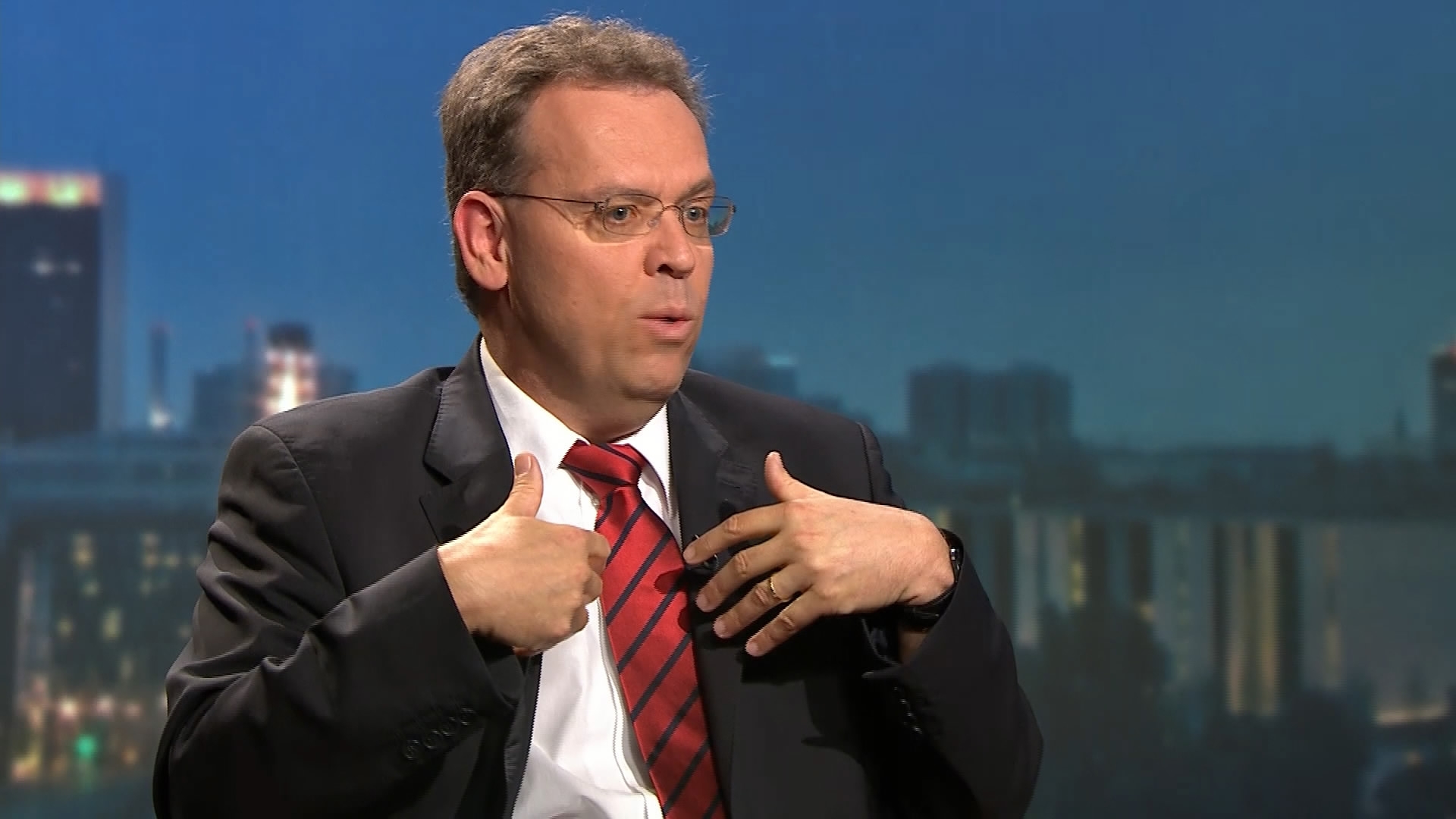
Sebastian Heilmann, director of the Mercator Institute on China Studies. /CGTN Photo
Sebastian Heilmann, director of the Mercator Institute on China Studies. /CGTN Photo
“There is clearly new necessity and room for collaboration between China and Germany on those issues. In climate policy, if we don’t see joint leadership in the G20 coordinated between Germany and China, this multilateral policy runs the risk of failing.”
Fighting trade barriers has also been a major concern. Germany has been demanding wider access to China’s markets, where foreign companies such as Volkswagen are obligated to establish joint ventures with Chinese partners.
For Charles Liu, founder of China’s Hao Capital, a change of perception was key: “In the past, Western companies went to China because of cheap labor and manufacturing. Today they are drooling over the market and the market size.”
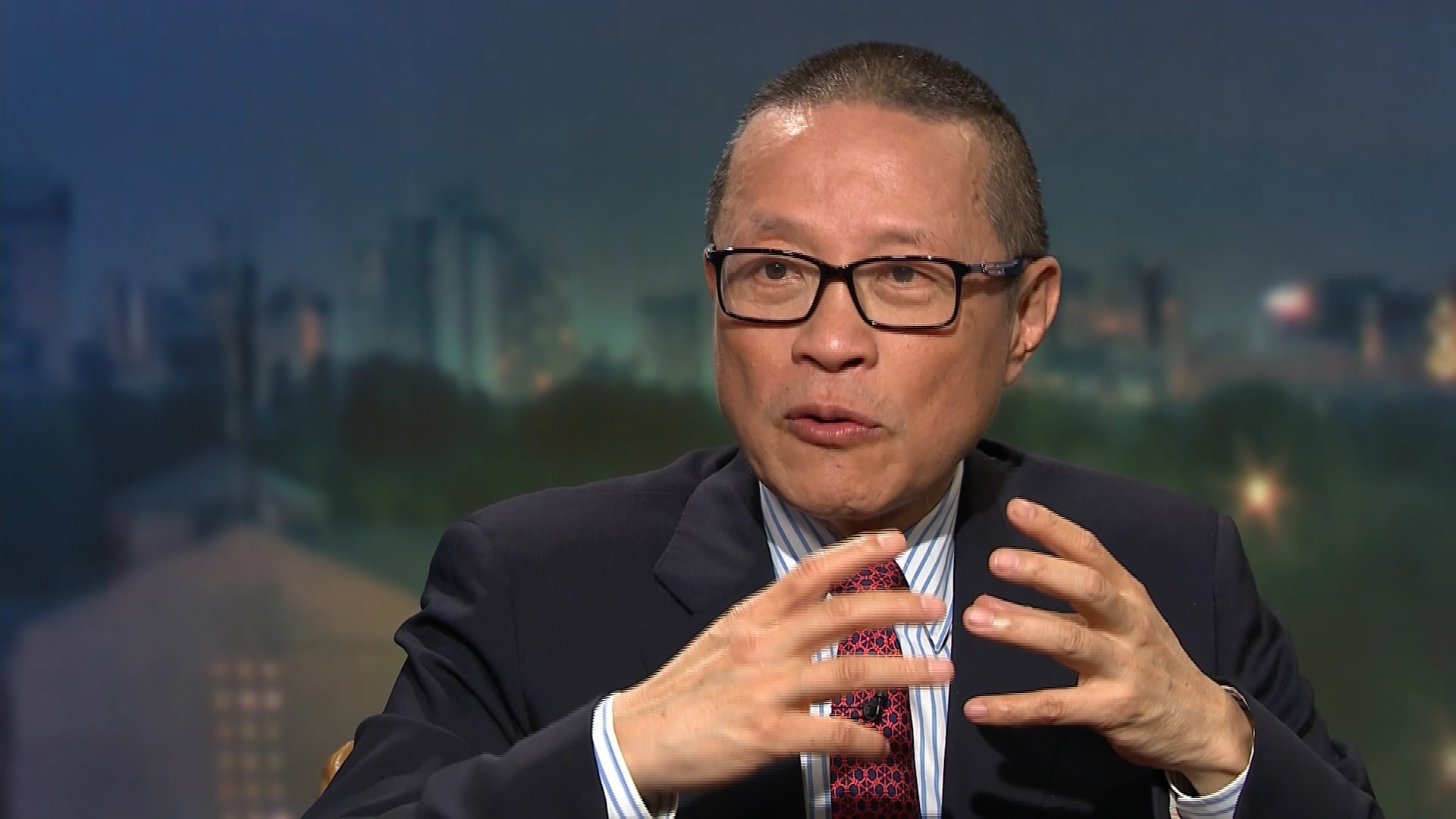
Charles Liu, founder of China’s Hao Capital. /CGTN Photo
Charles Liu, founder of China’s Hao Capital. /CGTN Photo
“China is an extremely competitive place. When Metro of Germany wanted to set up their supermarkets in China, they found Walmart is already there, Carrefour is already there, the local Chinese supermarkets are all set up and running… For Western multinationals, China is more important as a market than what it was important for in the past.”
Chen Han, co-CEO of China Europe International Exchange, praised the bilateral trade links. “Financial connectivity between China and Germany is more important than ever before. Germany is the second country to join the AIIB (Asian Infrastructure Investment Bank) in the EU.”
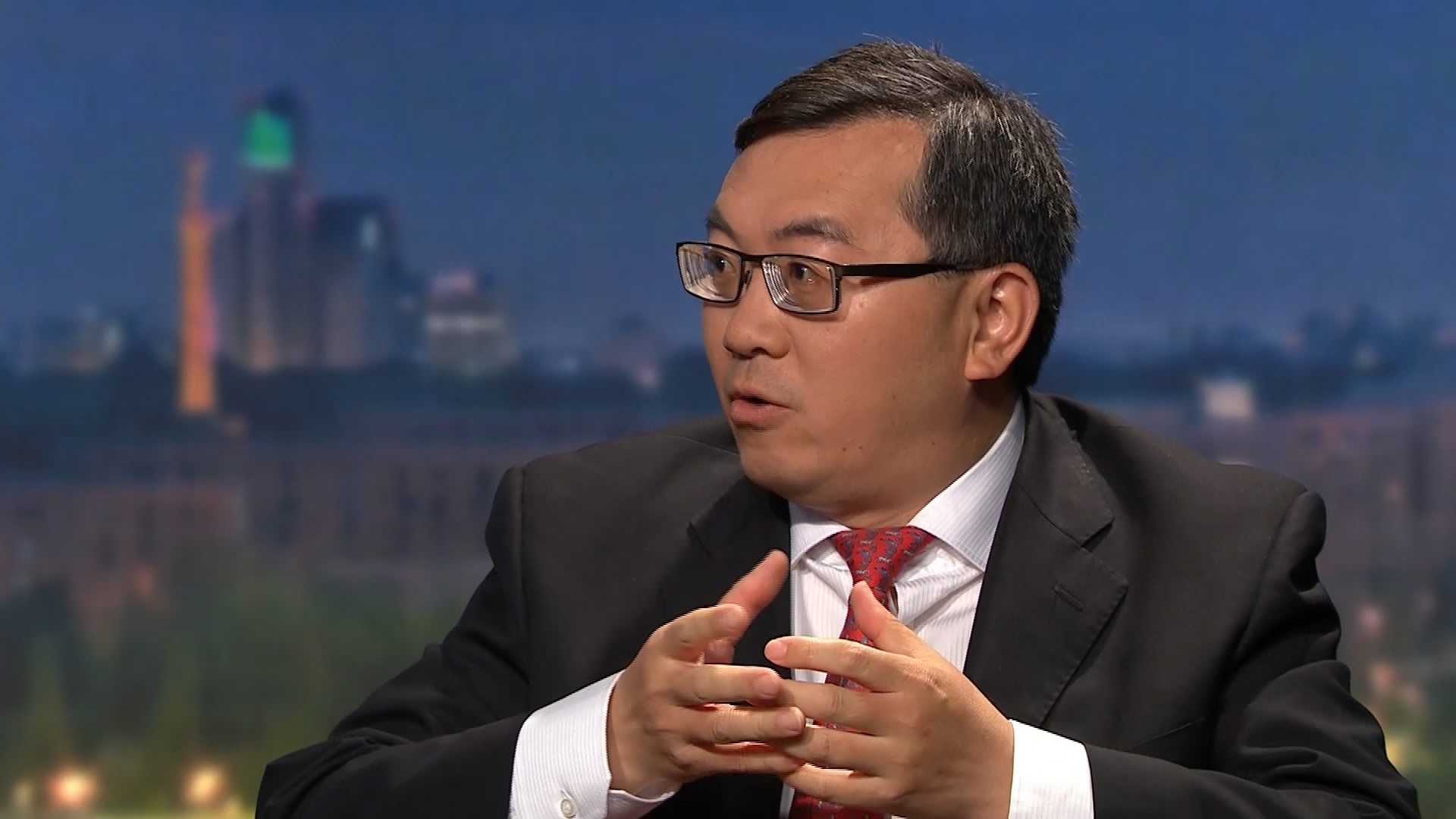
Chen Han, co-CEO of China Europe International Exchange. /CGTN Photo
Chen Han, co-CEO of China Europe International Exchange. /CGTN Photo
“Deutsche Bank signed the agreement with China Development Bank to cooperate in international investment. Financial cooperation is very important to support trade connectivity and real economy connectivity. Germany is very competitive in advanced manufacturing industry,” he added.
While the West has often been critical of China’s Africa policy, Gudrun Wacker from the German Institute for International and Security Affairs begged to differ. “The idea behind the Belt and Road Initiative is that development will bring stability. You need a certain amount of stability to go forward with development.”
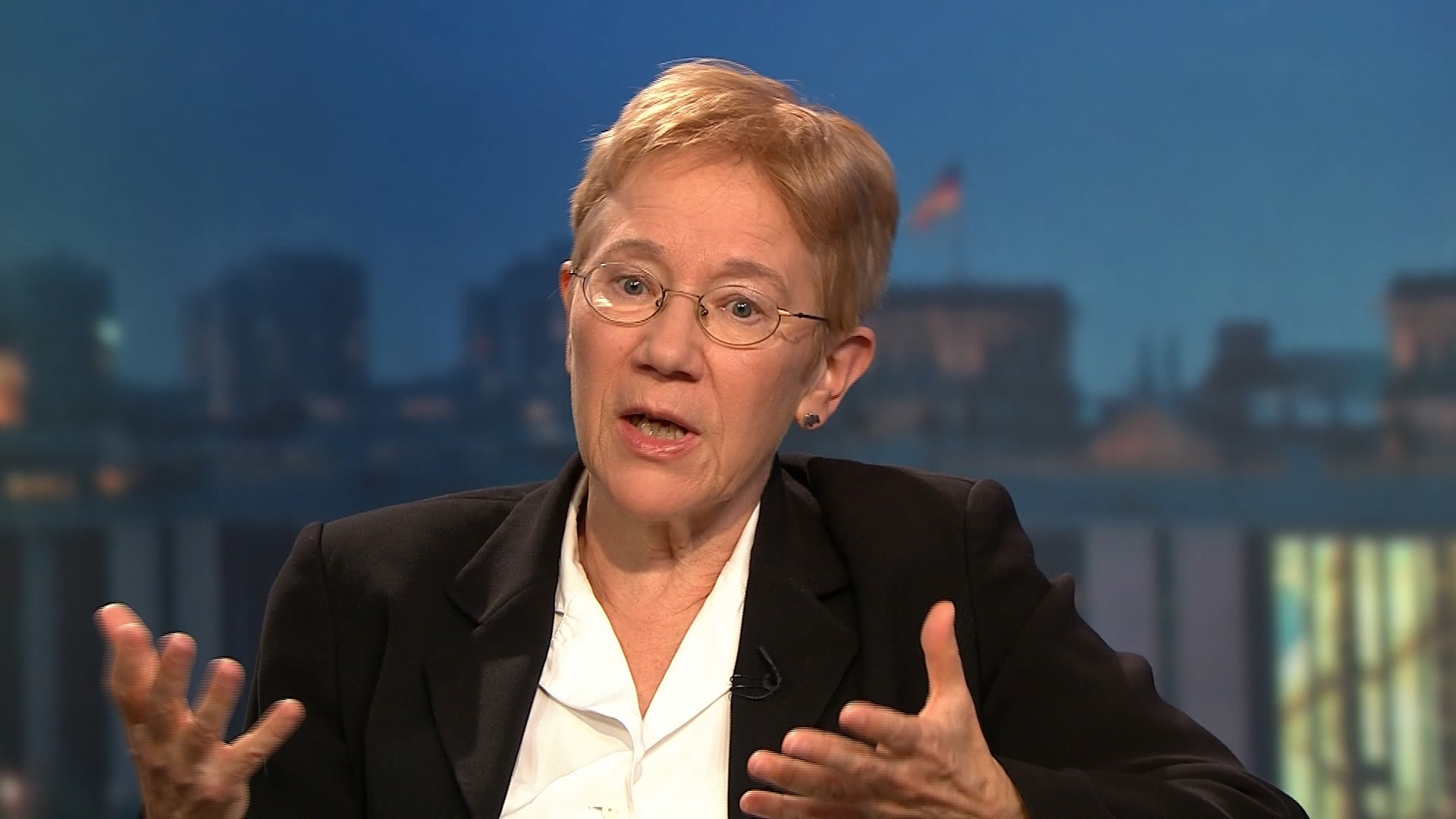
Gudrun Wacker, from the German Institute for International and Security Affairs. /CGTN Photo
Gudrun Wacker, from the German Institute for International and Security Affairs. /CGTN Photo
“In a way we see the same in Africa, there are a lot of biases against China’s engagement in Africa. Overall there are a lot of positive effects. There is also engagement in agriculture, education. So this picture that China just takes the resources is not true.”
One thing is for sure: China and the EU need to find new roles in some uncharted territories. Blame games will not help, but both sides – and the world – will benefit greatly if China and Germany can act together.
For the full debate, tune in to CGTN at 7.15 p.m. (1115GMT) on July 6, 3.00 a.m. (1900GMT) and 11.00 a.m. (0300GMT) on July 7.

SITEMAP
Copyright © 2018 CGTN. Beijing ICP prepared NO.16065310-3
Copyright © 2018 CGTN. Beijing ICP prepared NO.16065310-3